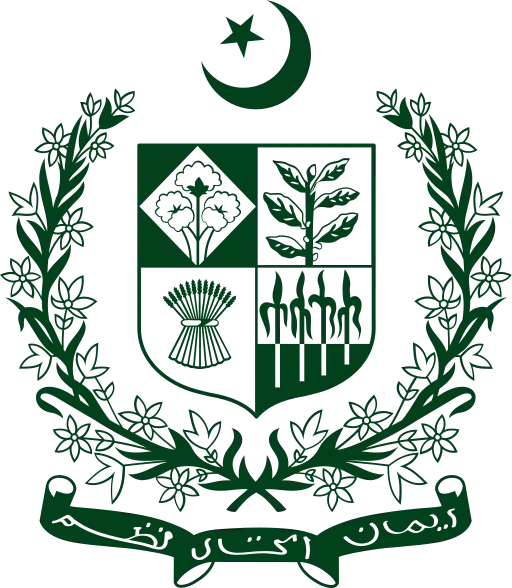| Ameer of Jamiat Ulema-e-Islam | |
|---|---|
| In office 1949–Unknown | |
| Preceded by | Shabbir Ahmad Usmani |
| Succeeded by | Abdullah Darkhawasti |
| Personal | |
| Born | 4 October 1892 [13th of Rabi’ al-Awwal, 1310 AH] Deoband, India |
| Died | 1974 Pakistan |
| Religion | Islam |
| Era | Modern |
| Region | Indian subcontinent |
| Political party | Jamiat Ulema-e-Islam |
| Main interest(s) | Jurisprudence Pakistan Movement activist |
| Notable work(s) | I'la al-Sunan |
| Muslim leader | |
| Teacher | Ashraf Ali Thanwi |
Students | |
Influenced by | |
Influenced
| |
| Part of a series on the |
| Deobandi movement |
|---|
 |
Zafar Ahmad Usmani (also known as Zafar Ahmad Thanwi) (Arabic: ظفر أحمد العثماني) (4 October 1892 – 1974), was a 20th Century Sunni Muslim Jurist who became an influential figure of the Hanafi school of Sunni jurisprudence's Deobandi Movement. He also was a prominent Pakistan Movement activist.[1][2]
He is most famous for having written I'la Al-Sunan, a 20 volume Hadith encyclopedia of Hanafi proofs, written as a refutation by the Hanafi school against the objections raised by the growing Ahl-i Hadith movement, as per the request of his uncle Ashraf Ali Thanwi.[3]
Birth
Zafar Ahmad Usmani was born on 4 October 1892 in Deoband. His ism (given name) was Zafar Ahmad. His nasab (patronymic) is: Zafar Ahmad ibn Lateef Ahmad ibn Nehal Ahmad ibn Karamat Hussain ibn Nabi Bakhsh ibn Hayātullah ibn Ināyatullah ibn Laqā'ullāh ibn Ihsānullāh ibn Nasīrullah ibn Dīwān Lutfullah ibn Owais ibn Ahmad ibn Abd al-Razzāq ibn Muhammad Hasan ibn Habībullah ibn Usmān ibn Ali ibn Shaykh Muhammad ibn Fazlullāh ibn Abu al-Wafā Usmāni.[4]
Education and career
After the death of his mother when he was 3, he was raised by his grandmother, considered to be a religious woman. He started studying and memorizing the Quran at the age of 5. At age 7, he studied Mathematics, Urdu, and Persian under Mawlana Muhammad Yasin. His uncle, Ashraf Ali Thanwi guided him as he studied with more religious scholars.[5]
In Pakistan, he became a close associate of Maulana Shabbir Ahmad Usmani and an active member of Jamiat Ulema-e-Islam founded by him. After the death of Shabbir Ahmad Usmani in 1949, he and Maulana Ehteshamul Haq Thanvi became key leaders of this party.[1][6]
Works
Usmani's most famous work is I’la’ al-Sunan, which is a Hadith Commentary that connects the opinions of this Hanafi's book with direct evidence from the Hadiths.[7] The reason for this was that the Ahl-i Hadith movement was growing and bringing their objections, and Maulana Ashraf Ali Thanwi asked his nephew to respond. The book was first printed in 1923.[8] It consists of 21 volumes.[3]
Honored by Jinnah
At the independence of Pakistan ceremony in 1947, Quaid-e-Azam Muhammad Ali Jinnah asked the renowned religious scholar Maulana Shabbir Ahmad Usmani to hoist the Pakistani flag in Karachi and he asked Zafar Ahmad Usmani to hoist it in Dhaka. Also, since Zafar Ahmad Usmani was a jurist, he was selected to take oath from the first Chief Justice of Pakistan, Abdul Rashid.[2][11]
References
- 1 2 1969: Fifty Years Ago: Islamic socialism Dawn (newspaper), Published 9 September 2019, Retrieved 2 March 2020
- 1 2 Nazaria Pakistan Trust (NPT) sitting on Usmani The Nation (newspaper), Published 9 December 2014, Retrieved 2 March 2020
- 1 2 Zaman, Muhammad Qasim. Ashraf 'Ali Thanawi: Islam in Modern South Asia. Oneworld, 2008. pg. 54-60
- ↑ Ubaid, Iqbal Asim (2001), Mawlāna Zafar Ahmad: Hayāt-o-Khidmāt, pp. 51–52
- ↑ "Shaykh Zafar Ahmad Uthmani - White Thread Press".
- ↑ Naazir Mahmood (26 February 2019). "Books on the highway". The News International. Retrieved 3 March 2020.
- ↑ Hefner, Robert W., and Muhammad Qasim. Zaman. Schooling Islam: the Culture and Politics of Modern Education. Princenton University Press, 2007. Pg. 64-65
- ↑ "I'la al Sunan, ARABIC by Maulana Zafar Ahmad al-Uthmani".
- ↑ Adrawi, Asir (1995). Dabistan-i Deoband ki Ilmi Khidmaat (PDF) (in Urdu). Deoband, UP, India: Darulmuaallifeen. pp. 166–168. OCLC 47964786.
- ↑ Kaleem, Mohd (2017). Contribution of Old boys of Darul uloom Deoband in Hadith Literature (PhD) (in Urdu). India: Department of Sunni Theology, Aligarh Muslim University. pp. 311–313. hdl:10603/364028. Archived from the original on 24 October 2023. Retrieved 24 October 2023.
- ↑ Syed Talha Shah (20 November 2018). "Aasia Bibi: Pakistanis need to bridge the mister-mulla divide". Daily Times. Retrieved 3 March 2020.
